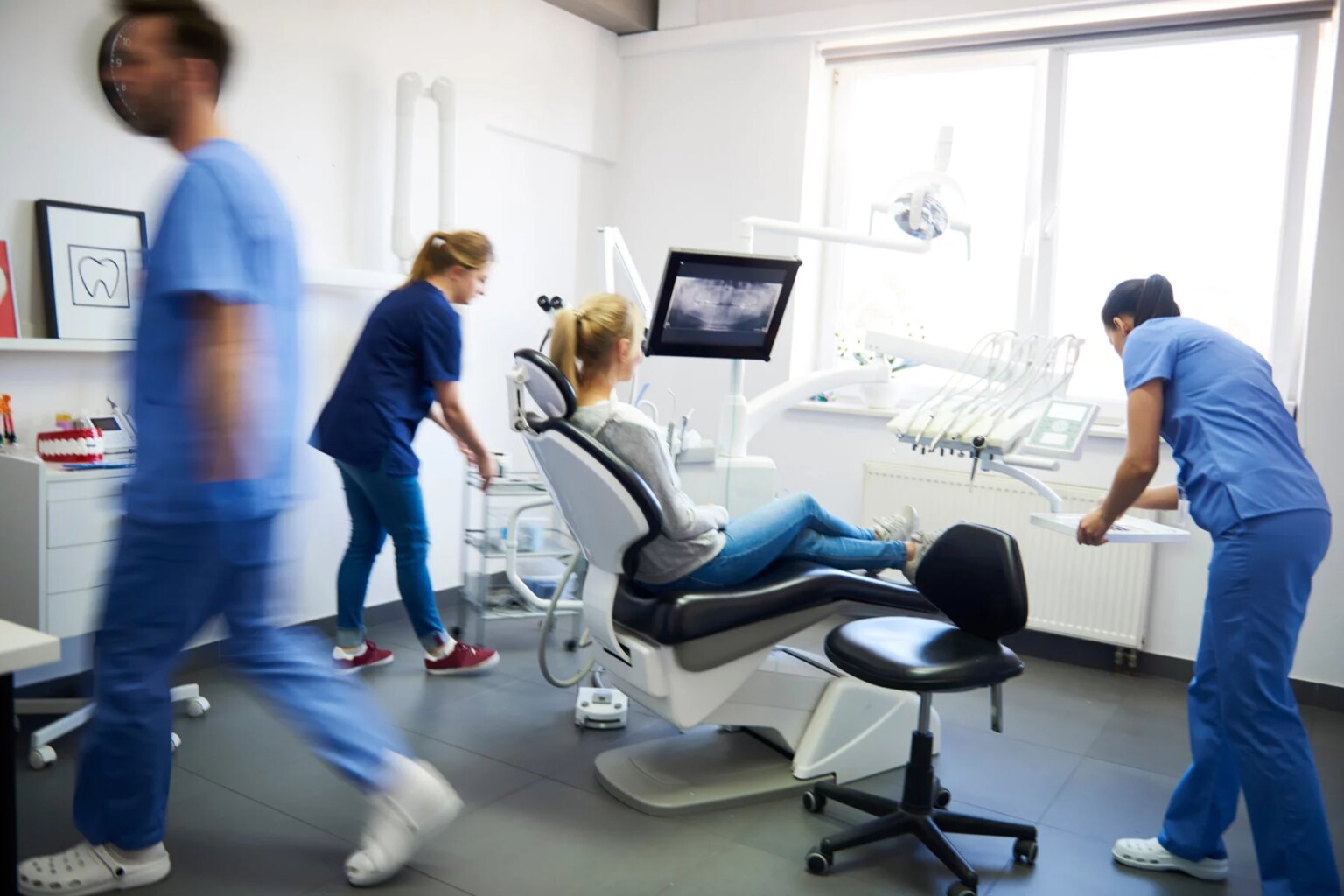Fortunately for expats moving to Germany, the country boasts a high-quality healthcare system, which includes dentistry.
Germany has a dual healthcare system that includes both public and private healthcare providers, and the type of health insurance you have will determine which services you can access.
To help you navigate the dental care system in Germany, this article provides the following information:
- The healthcare system in Germany
- Is dentistry good in Germany?
- How to access dental care in Germany
- How does public dental care work in Germany?
- Private dental care in Germany
- How to I get dental insurance for Germany?
- How to find a dentist in Germany
- What happens at a dental appointment in Germany?
- How much does German dental care cost?
- Children’s dentistry in Germany
- Emergency dentistry in Germany
- Useful resources
Feather
Protect your smile with Feather dental insurance. Feather is an expat-friendly digital insurance partner in Germany, offering simple online sign up. Feather’s website, consultations, contracts, and claims are all in English, and their team is available for free advice. So whether you’re looking for health, liability, legal, or life insurance, visit Feather online today.
The healthcare system in Germany
The dual public-private structure of the German healthcare system is the oldest in Europe, and it offers high-quality services, expert clinicians, and excellent patient care. In fact, it ranked in 8th place out of 110 countries in the CEOWORLD Magazine Health Care Index (2024).

However, residents must have public health insurance to access services. Fortunately, anyone living and working in Germany can sign up for public health insurance, which is known as Gesetzliche Krankenversicherung (GKV).
As you will have a choice of providers, it is a good idea to compare the schemes before deciding. Signing up for public health insurance involves a few steps:
- Register at the local municipality (Einwohnermeldeamt) to get a social security number (Sozialversicherungsnummer)
- Pay national insurance contributions
- Join one of many state insurance funds (Krankenkassen)
Once you have arranged public health insurance, you, your partner, and your children can access the public healthcare system. The state also provides public health insurance for students (academic or vocational), pensioners, and unemployed residents.
However, many people choose to supplement this with private health insurance (Private Krankenversicherung – PKV) to cover the extra costs, such as extensive dental treatments.
Notably, citizens from the European Union (EU), European Economic Area (EEA), and Switzerland can access state healthcare by using their European Health Insurance Card (EHIC). The EEA countries include Lichtenstein, Iceland, and Norway.
Is dentistry good in Germany?
Germany has a high standard of dental care – just 0.6% of the population report unmet needs. Furthermore, it has the fourth-highest average number of annual dentist consultations in the EU. Dental market research also shows that 60% of Germans attend regular dental checkups.
In 2022, there were over 71,000 practicing dentists in Germany. To practice, dentists must be accredited by the National Dental Association of Statutory Health Insurance (Kassenzahnärztliche Bundesvereinigung – KZBV) and meet strict criteria.
Dentists work in either private practices, communal dental clinics, or emergency dental services. Many are also specialists, such as pediatric dentists or orthodontists.
Interestingly, 25 September is the Day of Dental Health (Tag der Zahngesundheit). This is a public awareness campaign to promote oral health and educate the population about dentistry in Germany.
How to access dental care in Germany
Residents who have a social security number, pay national contributions, and are registered with a public health insurance fund can access public health services, including state dentistry in Germany.
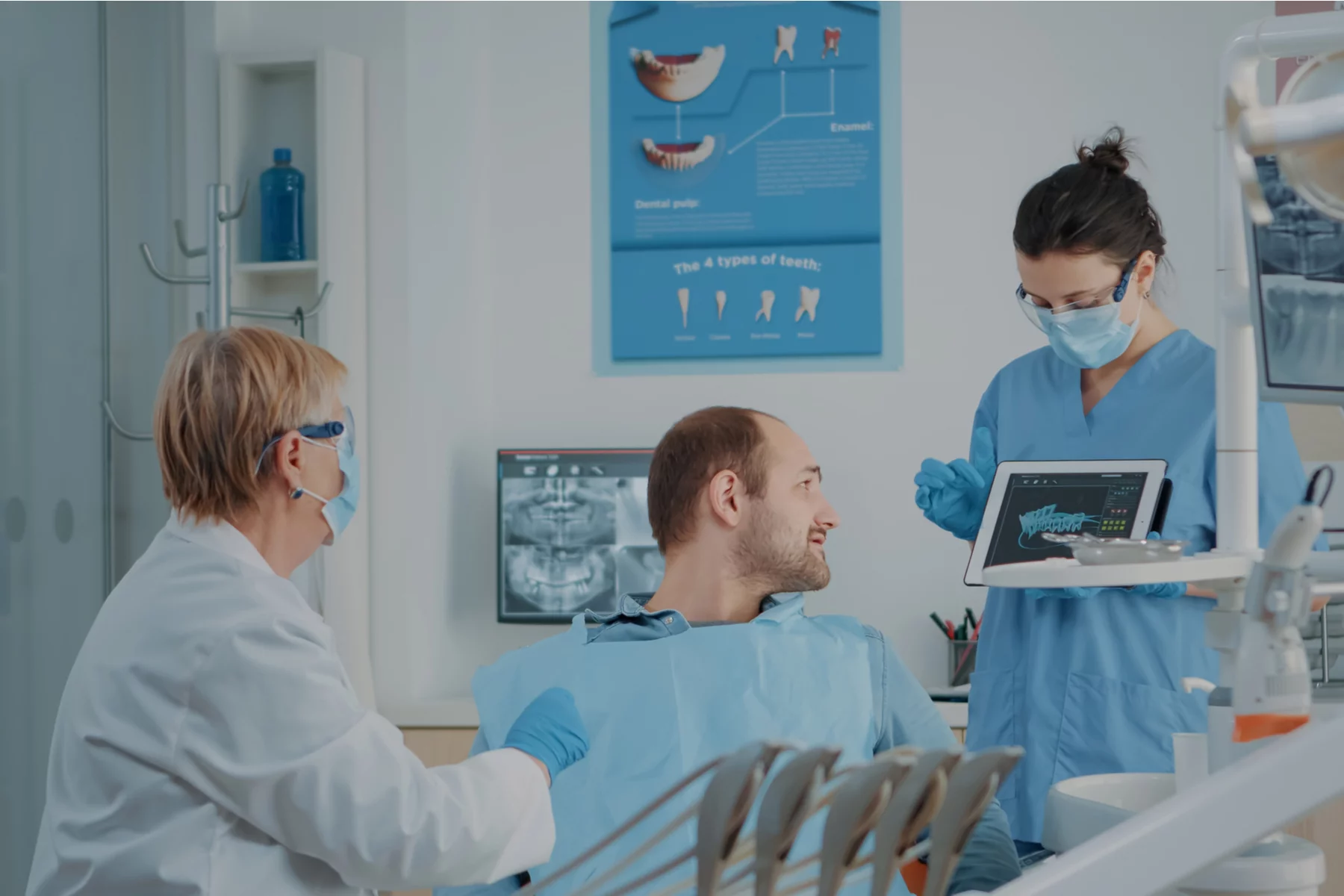
However, it is important to be aware that while most German dentists accept public and private insurance, some independent practitioners only enroll private patients. In fact, around 400 independent dental practices treat only privately insured patients in the country.
Once you have chosen a dentist, you need to register with their clinic. You will need to complete an application and submit copies of the following:
- Identity documents (passport or resident card)
- Proof of health insurance
- Social security number
- Dental records
How does public dental care work in Germany?
As mentioned, public health insurance covers primary dental care in Germany, such as bi-annual checkups, basic fillings, and wisdom teeth extraction. It also includes many pediatric treatments, which you can read more about further down this article.
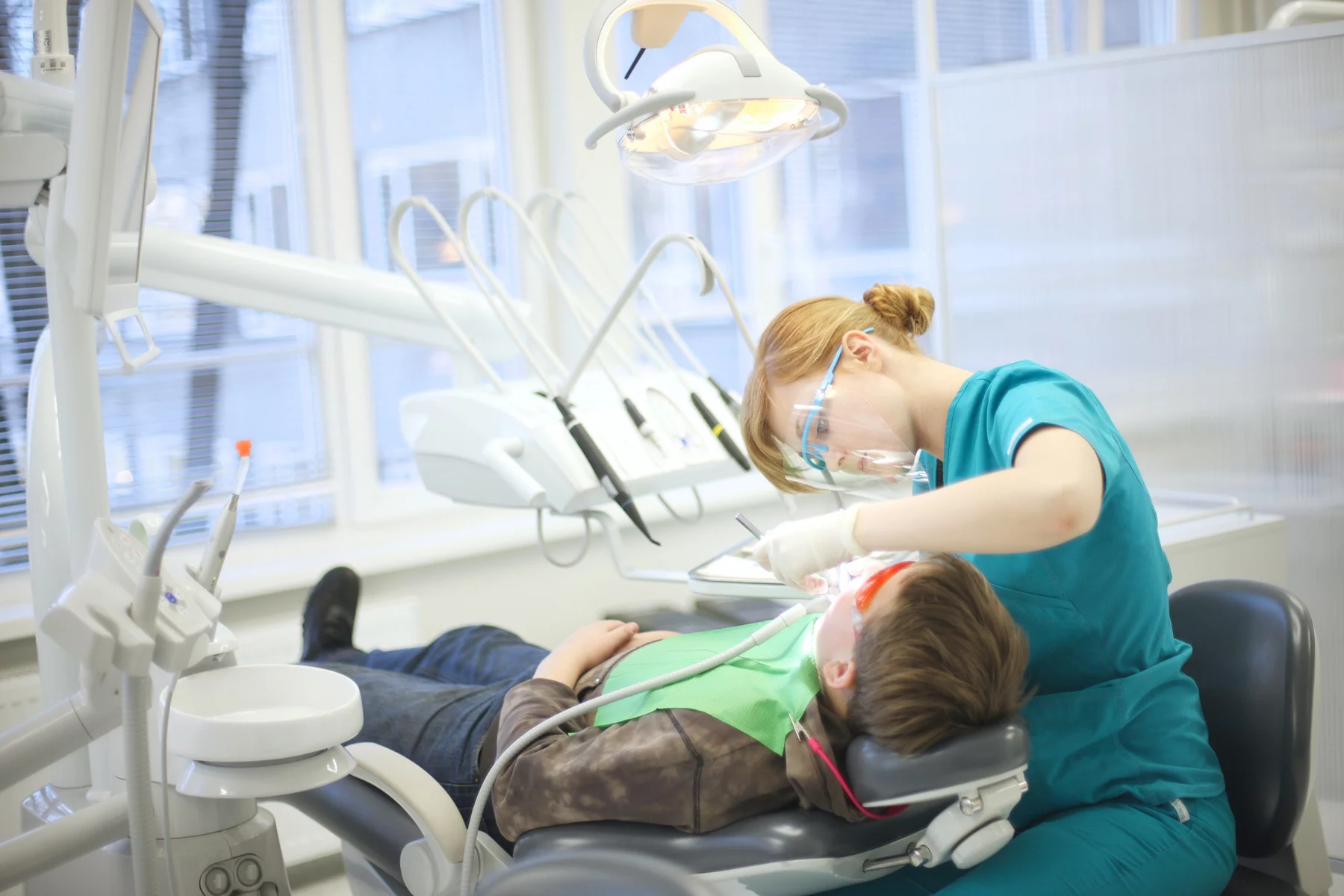
Even though public health insurance covers routine dental care, you will still need to pay for some treatments.
Because state health insurance doesn’t cover all dental procedures, many residents choose to purchase supplementary private health insurance.
Private dental care in Germany
In addition to providing routine dental services, independent practices in Germany also offer cosmetic treatments and specialized orthodontic and periodontic procedures. Fortunately, private health insurance covers nearly all dentistry costs.
You can usually pay for your dental treatment after your appointment or once the clinic sends you the bill. Notably, claim procedures may differ between insurance providers. They will either reimburse you or pay the clinic directly upon receipt of the invoice.
How to I get dental insurance for Germany?
Out-of-pocket dental costs can add up quickly, especially if you need extensive dental procedures, and this is where supplementary health insurance can be helpful. If you are publicly insured, you can purchase supplemental dental insurance through providers such as:
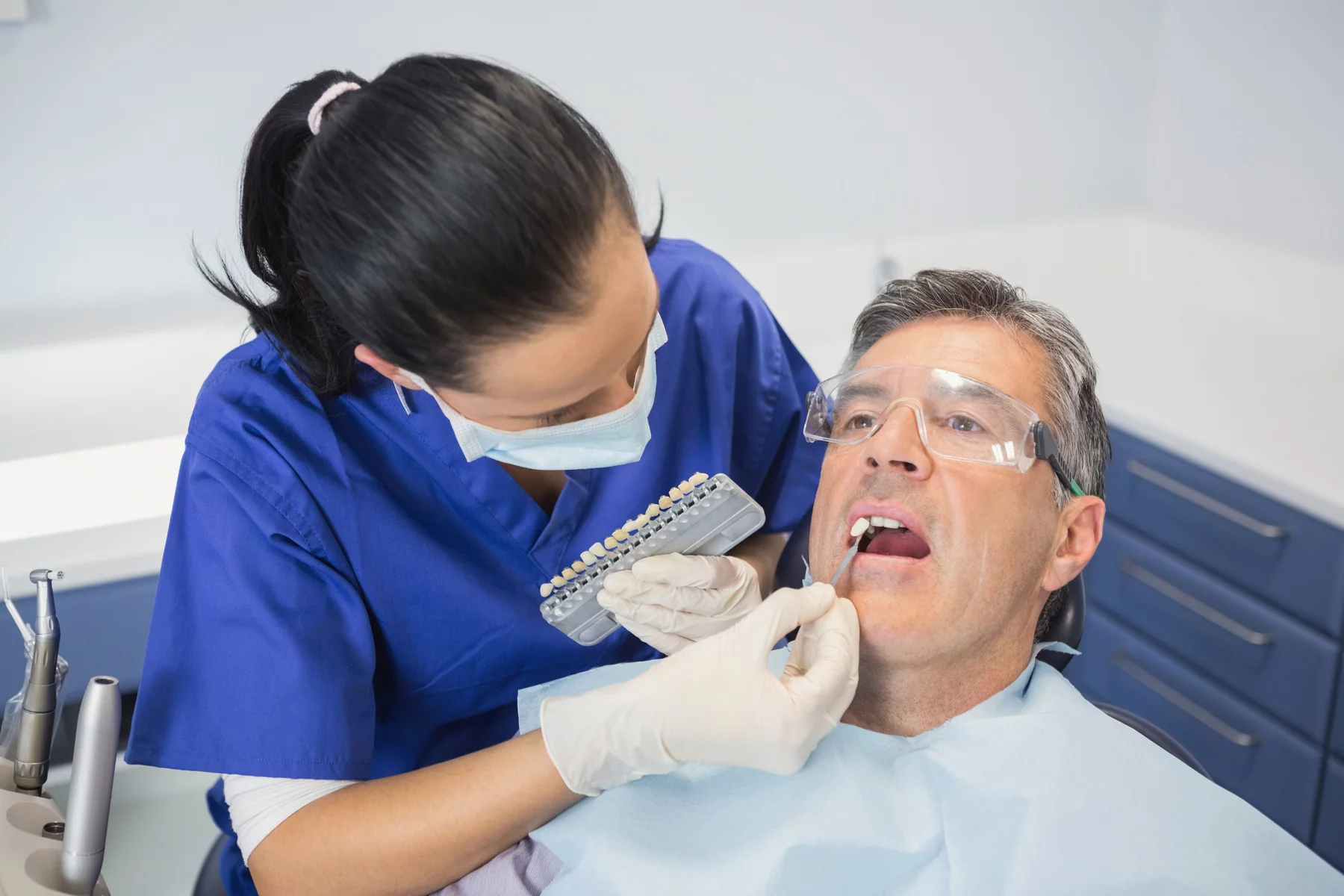
Fortunately, most private health insurance providers in Germany also offer supplementary dental insurance.
Furthermore, international health insurance providers offer tailored plans for expats. Although they’re not a replacement for mandatory local insurance, they’re good for top-up insurance or during coverage gaps. They’re also a useful choice if you plan to travel often and need cover in multiple countries. Providers include:
You can compare quotes for international providers on our own dedicated health insurance quotes page.
Of course, private health insurance premiums will depend on your age, cover you need, and whether you include your family in your policy.
How to find a dentist in Germany
Thankfully, you can freely choose your dentist in Germany and easily change to another one if you are unhappy with their service. Some practices might not accept new clients if they are oversubscribed.

To find a dentist in your area, you can use the federal and regional dental directories, KZBV Zahnarztsuche and Bundeszahnarztekammer Zahnarztsuche. You can also compare clinics and book appointments with platforms like Jameda, Doctolib, WhatClinic, and Doctena.
Alternatively, you can search for independent dentists via the PZVD website by postal code.
How to find an English-speaking dentist in Germany
Fortunately, many medical professionals in Germany, including dentists, speak a high level of English. Furthermore, some clinics even specify if their practitioners speak additional languages (including English) on their websites.
You can also use Zahnarzt: Arztsuche to search for local English-speaking dentists or ask for recommendations on online expat forums.
What happens at a dental appointment in Germany?
Once you register with a dental clinic, you can book an appointment via phone or online. You should arrive a few minutes before your scheduled appointment and report to reception with your insurance card.
After that, the waiting time is usually between 10 and 30 minutes. A hygienist will typically clean your teeth before you have your dental checkup. The whole appointment usually takes around 45 minutes to an hour.

If you need follow-up work, you can book it directly at the reception. You either pay for the treatment after your appointment or wait for the practice to send you a bill. You should also check with your insurance provider to determine how their claim procedure works.
How much does German dental care cost?
As mentioned, dental care in Germany can be expensive, especially if you need to undergo extensive treatment. Your level of health insurance coverage will also determine how much you will need to pay out-of-pocket.
Therefore, it is advisable to ask for a quote (Heil- und Kostenplan) and discuss it with your health insurance provider before going ahead with any specialized procedures. Note that your insurance policy may only partially cover these procedures.
How to find low-cost dental care in Germany
In Germany, residents qualify for free dental treatments if they receive Hartz IV (welfare) payments. This also covers costly procedures such as bridges and crowns.
However, if you don’t receive welfare payments but qualify as a low earner, you can access dental care at reduced rates. Again, it is best to discuss your situation with your health insurance provider.
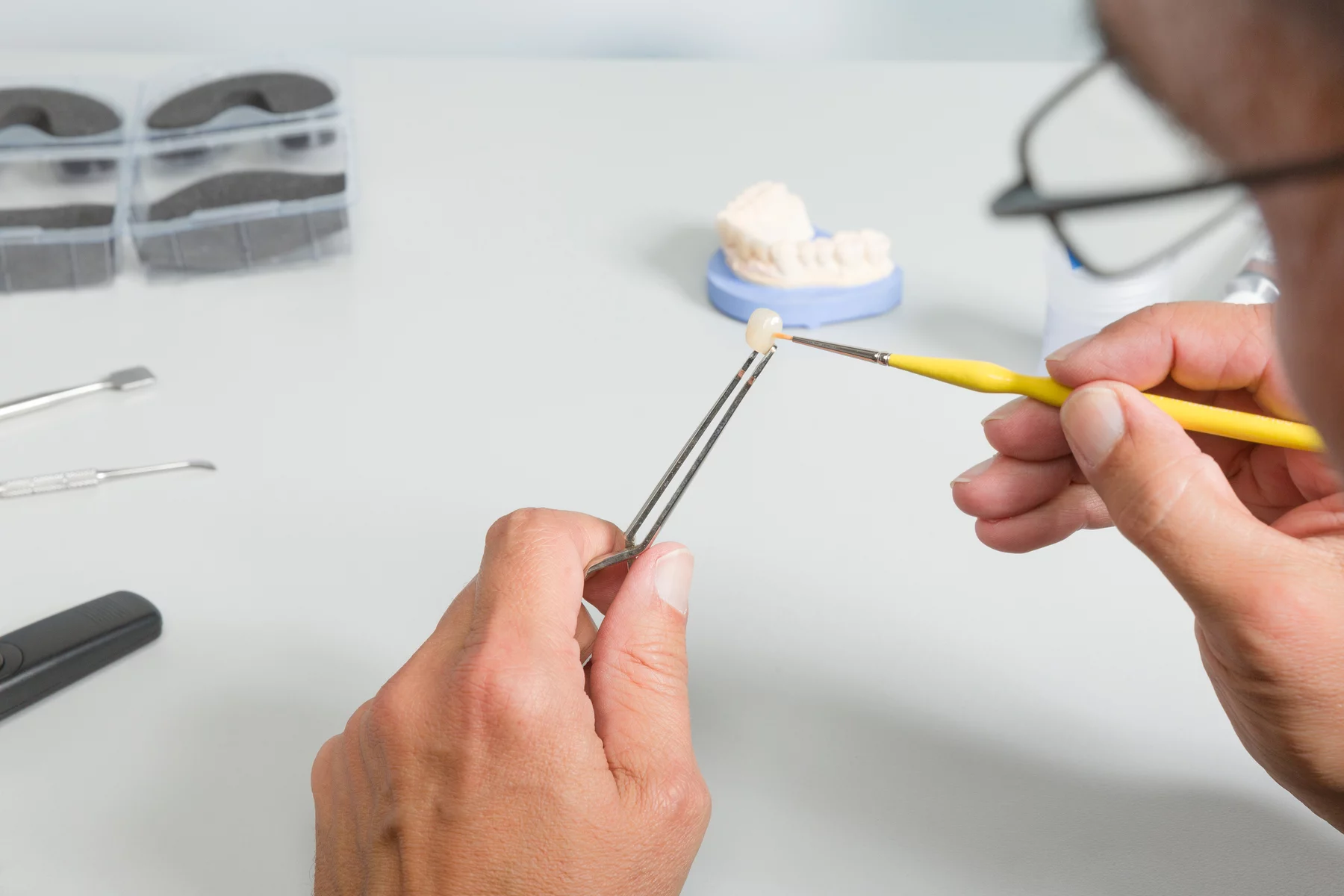
Germany also has the Bonusheft (dental bonus booklet) system, which allows you to recover costs for prosthetic work, providing you have been to the dentist regularly.
Children’s dentistry in Germany
Children between the ages of three and six can access free dental screenings and basic cleanings in Germany. However, this only covers three consultations in total. Note that you will need to show your child’s health insurance card at each dental appointment.
From the age of six to 18, public insurance generally covers the following dental care procedures:
- Bi-annual dental exams and fissure sealants (prevent cavities)
- Dental fillings (up to the age of 15)
- Teeth realignment or correction
Again, you should ask your insurance provider about additional coverage for specialized pediatric dental procedures before agreeing to them.
Emergency dentistry in Germany
If you need emergency care during working hours, you should first contact your dentist. However, if they cannot help you, or if you need assistance outside of working hours, you can use the online emergency dentist directory, Zahnärztlicher Notdienst.
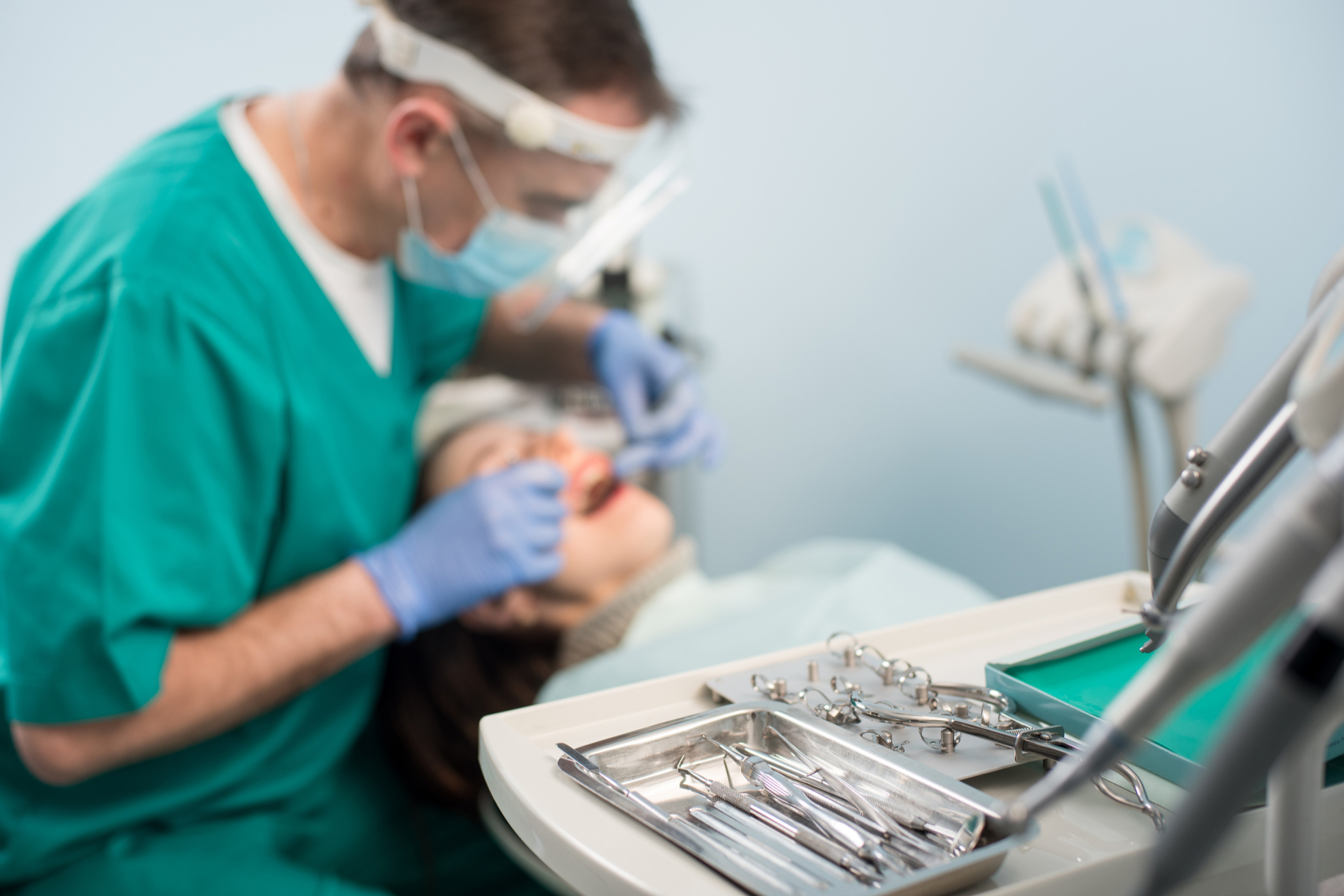
Fortunately, public insurance fully covers emergency dental procedures in Germany. Private patients, on the other hand, will receive a bill after their treatment, which they can claim back from their insurance provider.
Handy vocabulary for dentistry in Germany
If you’re still brushing up on your German skills, here are some useful dental-related phrases to learn:
- Dentist – der Zahnarzt
- Dental hygienist – die Zahnhygieniker
- Teeth – die Zähne
- Tooth – der Zahn
- Gum – das Zahnfleisch
- Root – die Wurzel
- Ceramic crowns – die Zahnkrone
- Composite filling – die Zahnfüllung/die Plombe
- Braces – die Zahnspange
- Mouth – der Mund
- Tongue – die Zunge
- Teeth cleaning/removal of tartar – Zahnsteinentfernung
- Professional teeth cleaning – Professionelle Zahnreinigung (PZR)
- Plaque – der Zahnbelag
- Tooth extraction – die Zahnextraktion
- Toothpaste – die Zahnpasta
- Toothbrush – die Zahnbürste
- Dental floss – die Zahnseide
- German insurance – Krankenkasse
- Cost estimate – Heil- und Kostenplan
Useful resources
- KZBV – directory for public dentists in Germany
- PZVD – directory for private dentists in Germany
- Zahnärztlicher Notdienst – emergency dental directory
- Eltern – tips for children’s first visit to the dentist
- Zahnarzt-finder – allows you to search for a dentist using your postal code
